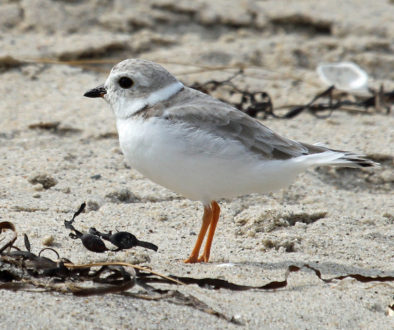Biodiversity and Climate Change

Climate change will have significant impacts on the natural world, food webs and nutrient cycles. As temperatures increase and precipitation patterns change, there will be many changes in the ecosystems which provide habitat for the flora and fauna of New Brunswick.
What are the concerns with biodiversity and climate change?
 As the effects of climate change increase, most species will experience shifts in their natural home ranges in the north and at higher elevations. The following factors play a key role in how well plants and animals can adapt to changes in their environment.
As the effects of climate change increase, most species will experience shifts in their natural home ranges in the north and at higher elevations. The following factors play a key role in how well plants and animals can adapt to changes in their environment.
Time: Many species can adapt quickly by migrating to more suitable habitat or altering their patterns. Other species, especially plants, require longer periods to adapt. If the pace of change is too quick, extinction becomes a risk.
Genetic variability: Larger populations of a given species are more likely to survive through simple evolution, while endangered species have lower genetic variability.
Availability of alternate habitat: To adapt and survive, many species have to move to more suitable habitat, if available. In an increasingly developed landscape, finding new habitat may be very difficult.
Food sources: A change in temperature affects when animals produce their young, hibernate and migrate, and when plants bloom and fruit. As species adapt at different rates, the likelihood exists that some animals may not be able to find suitable food sources at the right time, causing more stress to the species.

 Some examples include:
Some examples include: In New Brunswick, we need:
In New Brunswick, we need: